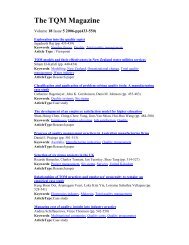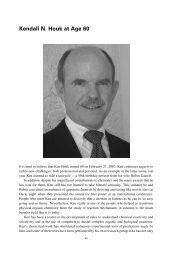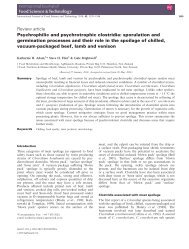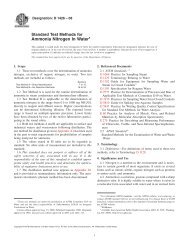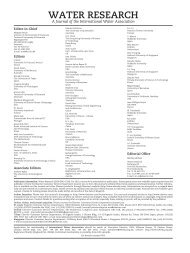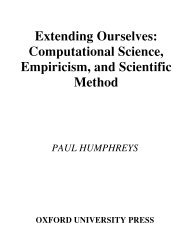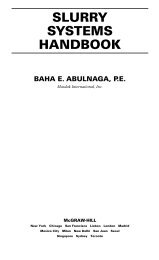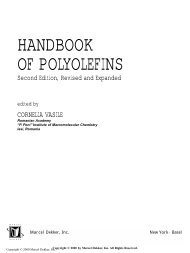Bad Astronomy: Misconceptions and Misuses Revealed, from ...
Bad Astronomy: Misconceptions and Misuses Revealed, from ...
Bad Astronomy: Misconceptions and Misuses Revealed, from ...
You also want an ePaper? Increase the reach of your titles
YUMPU automatically turns print PDFs into web optimized ePapers that Google loves.
WORLDS IN DERISION 175<br />
Many people avidly read Worlds in Collision, putting it on the<br />
bestseller list soon after it came out. It was a counterculture smash<br />
in the 1960s <strong>and</strong> ’70s. His popularity is waning now, but Velikovsky<br />
still has many followers, many of whom fiercely defend his<br />
notions.<br />
What are these notions? The basic premise espoused by Velikovsky<br />
is that the planet Venus was not formed at the same time as<br />
the other planets in our solar system. Instead, he concludes it was<br />
formed recently, only a few thous<strong>and</strong> years ago, around the year<br />
1500 b.c. According to Velikovsky’s analysis of the Bible <strong>and</strong> other<br />
ancient tomes, Venus was originally part of the planet Jupiter,<br />
which somehow split apart, ejecting Venus bodily as a huge comet.<br />
Over the ensuing several centuries, Venus careened around the<br />
solar system, encountering the Earth <strong>and</strong> Mars multiple times,<br />
affecting them profoundly. It was the gravity <strong>and</strong> electromagnetic<br />
effects of these near passes of Venus <strong>and</strong> Mars as well that caused<br />
all the catastrophes heaped upon our ancestors.<br />
As you might guess, I disagree with Velikovsky. I’m not alone;<br />
nearly every accredited scientist on the planet disagrees with him<br />
as well. There’s good reason for this: Velikovsky was wrong.<br />
Really, really wrong. The astronomical events he describes are not<br />
so much impossible as they are fantastically impossible—literally,<br />
they are fantasy.<br />
To be fair, a lot of accepted scientific theories sound fantastic,<br />
too. Who can believe that the universe started as a tiny pinpoint<br />
that exploded, creating time <strong>and</strong> space, which then began to exp<strong>and</strong>,<br />
forming the cosmos as we see it now?<br />
What you have to remember is that the Big Bang was first proposed<br />
after many astronomical observations were made that could<br />
not be explained any other way. There has been a great deal of<br />
support for the Big Bang for decades now, <strong>and</strong> it’s actually one of<br />
the most solid ideas in science. On the other h<strong>and</strong>, Velikovsky’s<br />
ideas have little support <strong>from</strong> astronomical observations, <strong>and</strong> in<br />
fact many fairly well-established astronomical theories directly<br />
contradict his ideas. The difference between the Big Bang <strong>and</strong> Velikovsky’s<br />
thesis is physical evidence. The former has lots, the latter<br />
has none.



